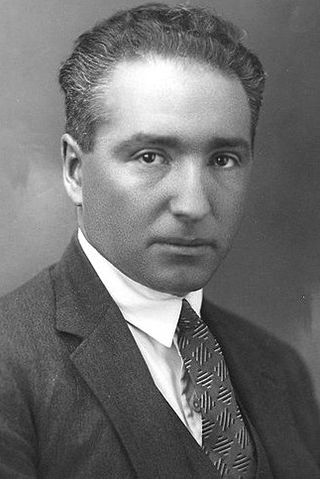Personality
Masochistic Personality Disorder: Time to Include in DSM?
The disorder once considered for the DSM may still have clinical applicability.
Posted March 23, 2019 Reviewed by Abigail Fagan
Our everyday use of the term "masochist" usually evokes thoughts of sexual behavior, such as that portrayed in the popular book and film Fifty Shades of Grey. However, the concept of masochism in psychiatry has historically had a broader meaning and application.
Once considered for inclusion in the DSM in the 1980s, Masochistic Personality Disorder (also known as Self-Defeating Personality Disorder) has been recognized by psychoanalytic thinkers for decades. Some argue that it should still be added to the diagnostic manual.
The originator of the concepts of both masochism and sadism, Richard von Kraft-Ebing was an Austro-German psychiatrist in the 19th century best known for his work on human sexuality. Kraft-Ebing termed the concept "masochism" after the German noble Sacher-Masoch, who in his novels described men who gained sexual pleasure from domineering women. The term "sadist" was also coined by Kraft-Ebing and is derived from another 19th-century noble, Marquis de Sade (Fuller, 1986).

Like Kraft-Ebing, Freud used masochism to refer to sexual peculiarity. In Beyond the Pleasure Principle, Freud contended that sadism and masochism go hand in hand: the masochist directs the death wish (thanatos) towards the self, while the sadist directs it towards others. Thus, he argued that the sadist is always a masochist in disguise (Freud, 1922).
It wasn't until the 1930s and 1940s that psychoanalysts like Horney, Fromm, Reik, Berliner, Menaker, and Ferenczi broadened the concept of masochism beyond its original sexual meaning. These analysts and others developed the concept of "moral masochism" to explain individuals who seem generally—not just sexually—to derive pleasure from pain, failure, and self-defeat. Perhaps the most influential of these theorists was Wilhelm Reich, who understood masochism as arising from a sexual instinct but manifesting more broadly in repeated self-defeating behavior (Fuller, 1986).
DSM-III, published in 1980 and chaired by Robert Spitzer, added Masochistic Personality Disorder to the chapter on conditions for further study. The diagnostic criteria for the disorder were:
A. A pervasive pattern of self-defeating behavior, beginning by early adulthood and present in a variety of contexts. The person may often avoid or undermine pleasurable experiences, be drawn to situations or relationships in which they will suffer, and prevent others from helping them, as indicated by at least five of the following:
1. Chooses people and situations that lead to disappointment, failure, or mistreatment even when better options are clearly available
2. Rejects or renders ineffective the attempts of others to help them
3. Following positive personal events (e.g., new achievement), responds with depression, guilt, or a behavior that produces pain (e.g., an accident)
4. Incites angry or rejecting responses from others and then feels hurt, defeated, or humiliated (e.g., makes fun of spouse in public, provokes an angry retort then feels devastated)
5. Rejects opportunities for pleasure, or is reluctant to acknowledge enjoying themselves (despite having adequate social skills and the capacity for pleasure)
6. Fails to accomplish tasks crucial to their personal objectives despite having demonstrated the ability to do so (e.g., helps fellow students write papers, but is unable to write their own)
7. Is uninterested in or rejects people who consistently treat them well
8. Engages in excessive self-sacrifice that is unsolicited by the intended recipients of the sacrifice
B. The behaviors in A do not occur exclusively in response to, or in anticipation of, being physically, sexually, or psychologically abused.
C. The behaviors in A do not occur only when the person is depressed.
Masochistic Personality Disorder was never added to the main text of the DSM, and it was removed entirely from DSM-IV, chaired by Allen Frances, in 1994. By that time, the diagnosis had become politically controversial. Since masochism has historically been associated with female submissiveness, some began to argue that the diagnosis applied to women who repeatedly found themselves in domestic violence situations.
In part due to this controversy, and in part due to the disorder's subjective criteria set and difficulty distinguishing this behavior from that observed in clinical depression, the DSM decision makers decided to scrap Masochistic Personality Disorder from the manual.
Still, many psychiatric thinkers—chiefly psychoanalysts and those inclined to an analytic approach—believe that the concept of masochistic personality deserves continued attention and warrants additional research for possible inclusion in the DSM. Nancy McWilliams, the well-known psychoanalyst and author of several popular books, has applied this concept throughout her work (see, for example, McWilliams, 2004).
While the DSM has moved more and more towards a descriptive, behavioral approach to psychiatric diagnosis, Masochistic Personality Disorder is no more subjective of a diagnosis than is Narcissistic Personality Disorder or Borderline Personality Disorder, both well-established and validated forms of characterological pathology.
As a practicing clinician, I can attest to the fact that many patients seem to fall into the self-defeating pattern of behavior described by Masochistic Personality Disorder, some of whom do not meet the criteria for major depression. A conceptualization of their problem in terms of a personality disorder may assist them in understanding the origins—and consequences—of their repeated self-defeat.
References
Freud, S., & Jones, E. (Ed.). (1922). International psychoanalytical library: Vol. 4. Beyond the pleasure principle (C. J. M. Hubback, Trans.). London, England: The International Psycho-Analytical Press.
Fuller, K. (1986). Masochistic personality disorder: A diagnosis under consideration. Jefferson Journal of Psychiatry, 4(2), 7-20.
McWilliams, N. (2004). Psychoanalytic psychotherapy: A practitioner's guide. New York: Guilford Press.


